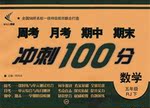题目内容
【题目】 Anyone who cares about what schools and colleges teach and how their students learn will be interested in the memoir (回忆录) of Ralph W. Tyler, who is one of the most famous men in American education.
Born in Chicago in 1902, brought up and schooled in Nebraska, the 19-year-old college graduate Ralph Tyler became hooked on teaching while teaching as a science teacher in South Dakota and changed his major from medicine to education.
Graduate work at the University of Chicago found him connected with honorable educators Charles Judd and W. W. Charters, whose ideas of teaching and testing had an effect on his later work. In 1927, he became a teacher of Ohio State University where he further developed a new method of testing.
Tyler became well-known nationality in 1938, when he carried his work with the Eight-Year Study from Ohio State University to the University of Chicago at the invitation of Robert Hutchins.
Tyler was the first director of the Center for Advanced Study in the Behavioral Sciences at Stanford, a position he held for fourteen years. There, he firmly believed that researchers should be free to seek an independent (独立的) spirit in their work.
Although Tyler officially retired in 1967, he never actually retired. He served on a long list of educational organizations in the United States and abroad. Even in his 80s he traveled across the country to advise teachers and management people on how to set objectives (目标) that develop the best teaching and learning within their schools.
【1】 Who are most probably interested in Ralph W. Tyler's memoir?
A. Top managers.
B. Language learners.
C. Serious educators.
D. Science organizations.
【2】 The words "hooked oh teaching" underlined in Paragraph 2 probably mean _____.
A. attracted to teaching
B. tired of teaching
C. satisfied with teaching
D. unhappy about teaching
【3】 Where did Tyler work as the leader of a research center for over 10 years?
A. The University of Chicago.
B. Stanford University.
C. Ohio State University.
D. Nebraska University.
【4】Tyler is said to have never actually retired because_____.
A.he developed a new method of testing
B.he called for free spirit in research
C.he was still active in giving advice
D.he still led the Eight-Year Study
【5】 What cannot we learn about Ralph W.Tyler in this article?
A.When and where he was born
B.Where he studied and worked
C.His devotion to American education
D.His life with his family
【答案】【1】 C
【2】A
【3】B
【4】C
【5】 D
【解析】【1】 细节理解题。从文章第一句话不难看出最有可能对Ralph W.Tyler的回忆录产生兴趣的是教育工作者。
【2】 词义猜测题。be hooked on意为“着迷于……的”
【3】 细节理解题。根据第五段的第一句话得知。
【4】 推理判断题。作者在文章的最后一段中提到尽管Tyler在1967年退休,但他并未停止在美国国内及世界各地从事与教育有关的活动,他对教学及管理方面的建议至今仍有现实意义。
【5】 细节理解题。文章没有提及他的家庭生活。

 新非凡教辅冲刺100分系列答案
新非凡教辅冲刺100分系列答案